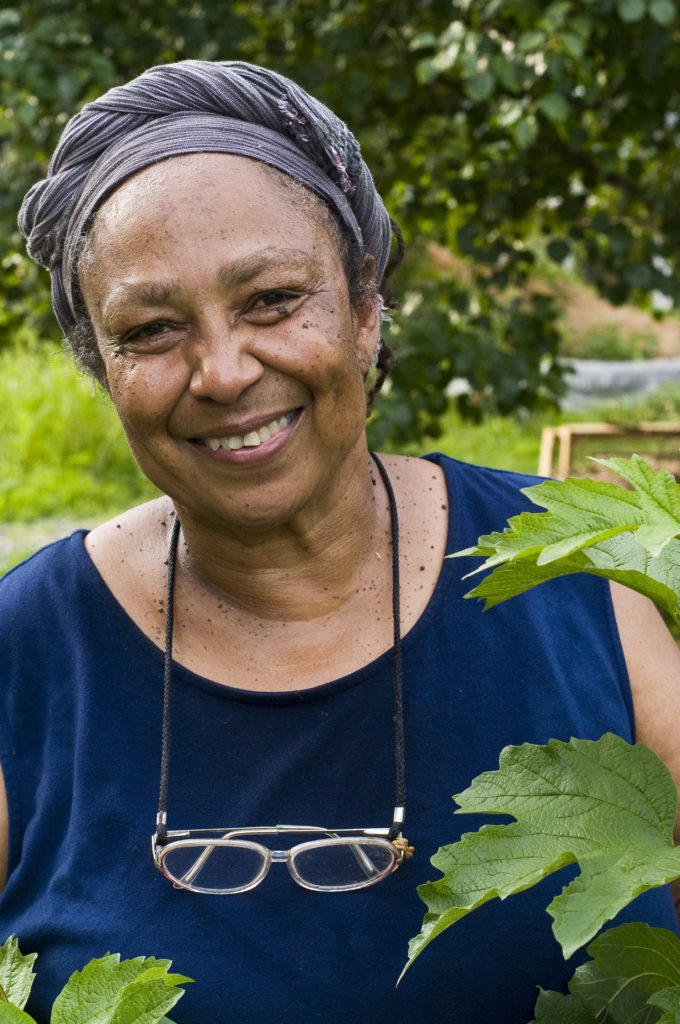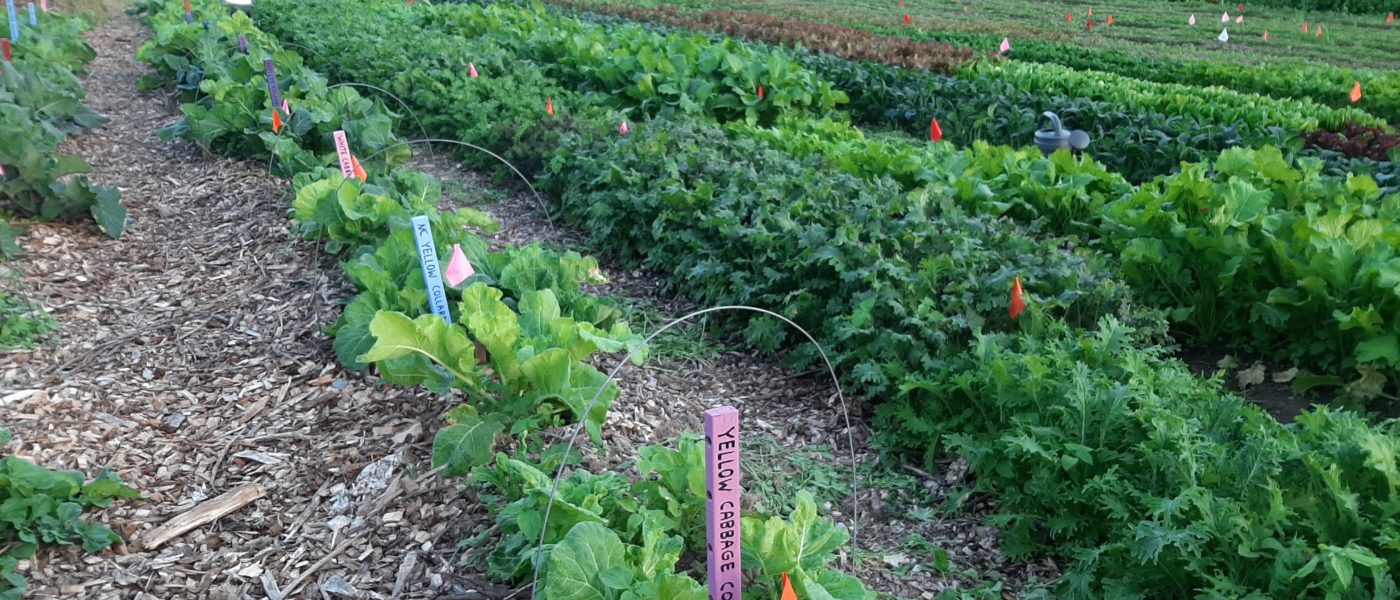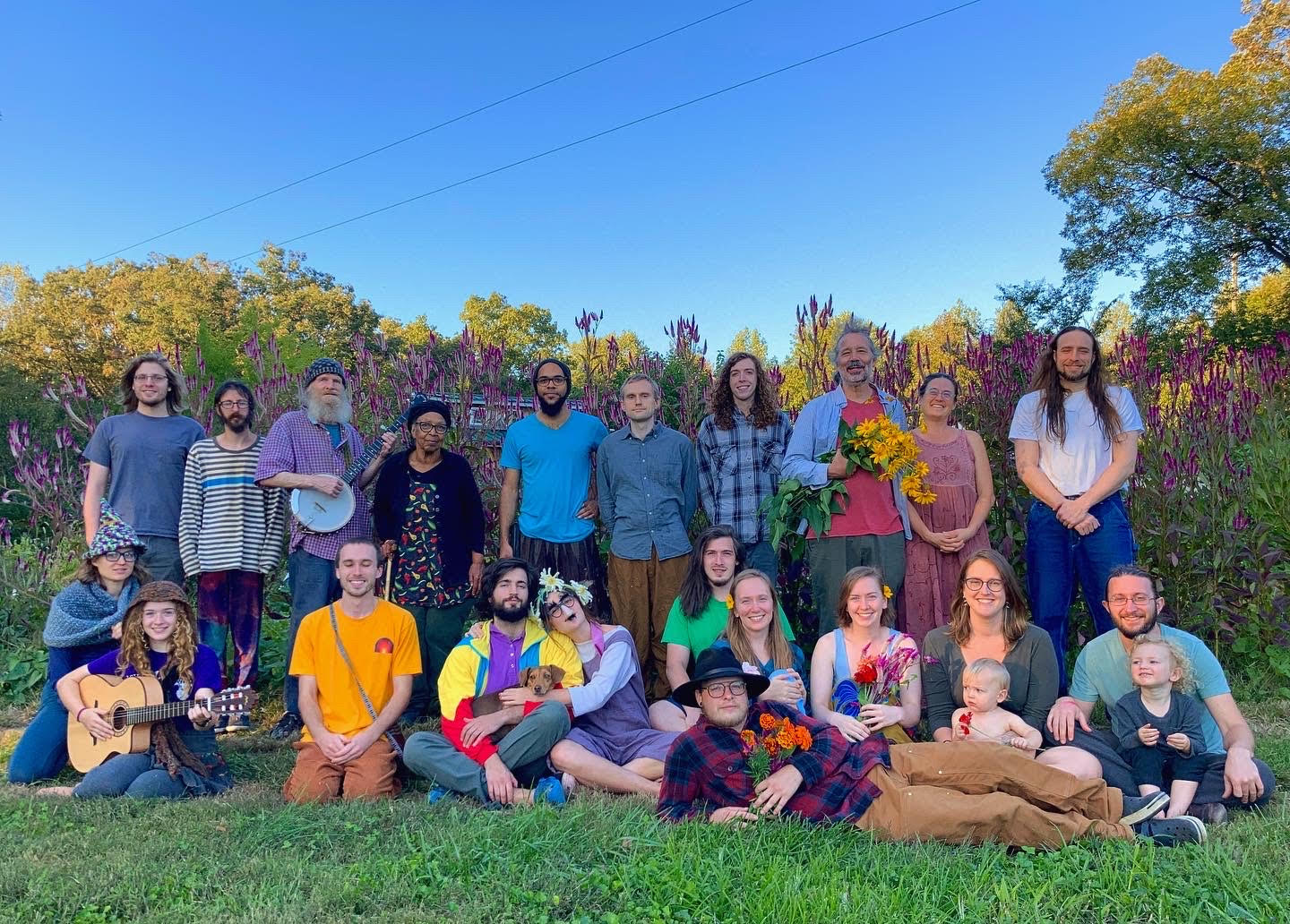Ira Wallace has spent most of her life farming within community. Growing up, she lived with her grandmother and worked with her in her large garden. When her grandmother died the year Ira went to college, Ira got involved with the student garden to care for her emotional health. The student garden community also operated a food co-op, which bought produce from local farms. Through this experience, Ira observed many different types of farms, especially organic farms. She also learned about intentional communities, and developed her own vision of an intentional community, which always included growing food.

Ira initially thought she could not make a living doing organic farming, but she found success by following the advice of the great small farms advocate and professor, Dr. Booker T. Whatley. Working in the late 20th century, Whatley designed the precursors for both U-pick and the CSA (meaning Community Supported Agriculture) models of farming. He advised small farmers to diversify their crops and their business models to combine farming with value-added products. Ira would follow Whatley’s advice, putting both farming and value-added work together in the form of a community farm and a seed company.
In 1993, Ira became a founding member of Acorn Community Farm, a community of about 30 people in central Virginia who hold in common their land, labor, resources and income, and use this for the good of their community as a whole and their members as individuals. In 1999, the Acorn Community diversified their model as Whatley advised, taking over stewardship of the Southern Exposure Seed Exchange from its founders Dr. Jeff MacCormack and his wife Patty Wallens.
Southern Exposure Seed Exchange is a cooperatively owned seed company that offers non-chemically-treated vegetable, flower, herb, grain and cover crop seeds. They emphasize varieties that perform well in the Mid-Atlantic and Southeast, although gardeners and farmers across the country grow their seeds. Through the diversified model of the farm and the seed company, the Acorn Community has been able to support themselves completely. Because there are so many people involved in running the business, there are different ways for everyone to be involved. In addition to being a farmer, Ira writes, makes videos, and connects with other institutions. For example, she is the founder of the Monticello Heritage Harvest Festival in Charlottesville, Virginia. Other community jobs on the farm, besides farming, include packing seeds, office work and harvest record-keeping. Ira says, “Farming is more sustainable if it uses all the talents of the people, either in your family or your co-op.”
Acorn Community Farm is situated on 72 acres, but only about 4 acres of that is utilized for growing seeds. Since 99% of Southern Exposure Seed Exchange’s seeds are open-pollinated, they cannot grow seed of the same species right next to each other, otherwise they risk cross-pollination between varieties. So, they alternate the use of the land between seed plots and pasture. Ira explains, “For seed, what you need is smaller areas with extreme attention to quality of seed.”
Acorn Community Farm grows about 7-10 of the varieties in the Southern Exposure seed catalog; the rest of the seed is grown on other farms, about 70 of them throughout the Southeast. Most of those farmers are growing seeds that Southern Exposure has requested. But some are seed-keepers growing heirloom seeds that are very tied to their local landscape or their cultural heritage, and they end up introducing new types of seeds to the Seed Exchange. This collaboration comes out of relationship-building between Southern Exposure and the farmers; more than half of the Exchange’s relationships go back more than a decade.
Southern Exposure is run cooperatively by Acorn Community members, who work in a non-hierarchical way. As they put it, There are no bosses, owners, investors. “We’re not very good at being bosses anyways, so we don’t try,” Ira says with a laugh. “We got together as an experiment in economic justice and we continue that work in our relationships with farmers.” For instance, at one point Southern Exposure realized they were overwhelmed with demand for sweet potato slips, so they found a farmer who likes growing sweet potatoes and he started growing for them. Eventually, his sweet potatoes got so popular, that the Exchange began encouraging their customers to buy large quantities of slips directly from the farmer, cutting themselves out of the deal. “He’s developed a nice farmer-to-farmer business and that’s what we think is important — to encourage and help our farmers develop other on-farm businesses that add value to their work,” Ira explains.
There are more than 700 varieties in the Southern Exposure catalog, and about 500 are organic. Many of the non-organic varieties are heirlooms (defined as any seed variety that dates back to at least 1940) that are being cared for by people maintaining them for regional characteristics, and they grow in such small quantities, it’s not worth the amount of money it takes to get certified as organic. Southern Exposure is invested in carrying these seeds, because even though they might not be in high demand, they are important for maintaining seed diversity. Ira speaks about heirloom seeds as “family heirlooms,” something valuable passed down through the generations. She encourages farmers and gardeners to start saving seeds. “You see a variety that you really like, and it disappears, so if you find an open-pollinated variety that you like, treasure it. Adopt it. A hundred years from now, have it be your family’s heirloom,” she advises.
Even though she recently entered her seventies, Ira wants to continue to grow and explore new avenues, and her passion for family heirloom seeds infuses her work. She has developed a personal and professional interest in adding more seeds from the African Diaspora to the Southern Exposure collection. She has recently gotten really into collards and has been an instrumental part of The Heirloom Collard Project. Collards are the only Brassica oleracea that was largely developed in the United States. Her research has revealed that most of the breeding work originally was done by enslaved Black people. “I’m looking at varieties that were brought by people of African Ancestry, both from the Caribbean and from Africa, and have planted themselves in the U.S.”
In her search for the history of these seed varieties, Ira finds, “It’s so much easier to find out about European heirlooms because there’s so many more written records.” She explains, “Family heirlooms are one of our specialties, and by just telling the stories of the families that are growing and using these varieties that opens people’s eyes to how much some farmers and farm families have been excluded from the records.” She relies mostly on these stories, but she also studies plantation farm records (in which enslaved people are occasionally named) and tries to match them up with the stories of families in the present day. This can be a difficult challenge due to of the almost unfathomable loss of Black-owned land over the last century totaling more than 12 million acres. But, she says, “You get surprised. People reach out. It’s good.”
“In most farm communities where farming was successful, it was a community thing, not just one man.”
Ira points out that many of us hold in our minds an idea of the family farmer as an independent individual. “But in most farm communities where farming was successful, it was a community thing, not just one man. Sometimes there were a lot of people who were related to each other helping each other and building it up,” she says. In her research into collards, Ira found a town in Georgia where it wasn’t just one family, but dozens of families growing collard seeds through the years, with one family processing them and others marketing them. “I think that the hidden thing is that family farms that succeeded had a lot of cooperation either in their own extended family or in their community.”
Ira has invested her life in building community networks to make farming work. But living and farming in community comes with some challenges. Many members of Acorn don’t have a farming background, so they are always learning new things. Ira sees how multi-generational farmers have a lot of knowledge built-in and she says, “They can fix anything!” She also notes that “We, in the U.S. culture, haven’t always learned how to cooperate, so sometimes you have to learn to cooperate with another group of people.” Acorn Community continues to rise to the challenge, however, and they have been able to live simply so that they can reinvest in the farm and help other farmers when they need support.
Ira invests in community in other ways, too. She works for food justice, with the understanding that “cheap food is not cheap!” She believes it is important to both pay farmworkers a living wage while also making good food accessible to everyone. Part of that work includes educating people on how to prepare healthy foods. She also works to support the next generation of farmers with her wisdom and knowledge, especially Black, Indigenous and People of Color (BIPOC) farmers. She’s on the board of the Organic Seed Alliance, which has a seed-farmer training program, and she mentors people online who don’t have a mentor close-by. Ira has found success as a farmer by investing in community: her immediate community that she lives and farms with, the community of farmers Southern Exposure works with, the community of Charlottesville, and the larger farming community.
Further Reading
To learn more about a major cause of Black land loss, “heirs property,” we suggest:
Highlighting Heirs’ Property Ownership and Land Loss, a USDA Forest Service publication
“Heirs Property” by the Center for Agriculture and Food Systems at Vermont Law School





